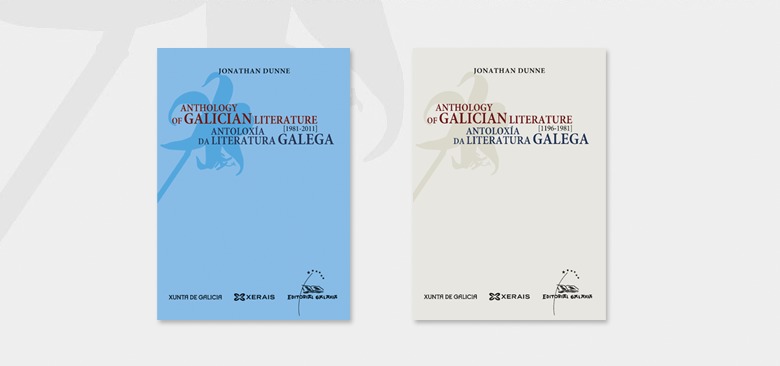Galicia’s two main publishing houses, Galaxia and Xerais, have joined forces to publish a unique two-volume Anthology of Galician Literature in a project involving renowned translators, amongst them project curator Jonathan Dunne, to promote Galicia’s great literary tradition in the English-speaking world
[su_note note_color=”#f4f4f4″]Galicia’s two main publishing houses, Galaxia and Xerais, have joined forces to publish a unique two-volume Anthology of Galician Literature in a project involving renowned translators, amongst them project curator Jonathan Dunne, to promote Galicia’s great literary tradition in the English-speaking world.[/su_note]
Every writer, even if he or she claims otherwise, writes in order to be read. Some of them may claim, “I write purely for myself,” but this is never true. No, the act of writing is an exercise in communication. When primitive humans painted on the walls of their caves (or rather, wrote with pictures), they were trying to communicate, be it with their kin, with the gods, or perhaps even with the future.
It is very important to find people to read our work, which is why we reach out to them through blogs and social media; we invite everyone to have a wander through our profiles.
Communication.
This can be wrought with difficulty, especially for writers using minoritised languages, who suffer major problems gaining recognition. It is challenging for them to compete with the powerful media and market support enjoyed by other languages which are, in this sense at least, stronger.
Galician literature finds itself in just such circumstances. Minoritised even within Galicia itself, it still has an astonishing vitality. Every year, more and more Galician authors have their work translated into other languages. Especially in the field of children’s and young adults’ fiction, the routine of translation has truly become a (welcome) routine. However, in terms of Galician literature as a whole, it is still a substantial challenge to get the major international literary agents and the most powerful publishers to take any notice of Galician literature at all.
This is why we must celebrate the publication of these two volumes, coordinated by the translator Jonathan Dunne and published, with the support of the Galician government, by Galaxia and Xerais, the two biggest Galician-language publishers. This new Anthology of Galician Literature brings together almost a hundred texts from just as many authors, translated into English. These extracts have been carefully selected as representative of the quality of each author’s work as a whole. Many talented contributors have lent a hand, not only with the translation itself but also with the rigorous process of selecting which extracts to include.
Volume one covers 1196 to 1981. This first date may come as a surprise to some, but in fact there is nothing unusual about dealing with Galician writing from the twelfth century. Not everyone is aware that the first learned lyric poetry in Europe was written in Galician-Portuguese. Alfonso X, a Castilian king, specifically composed his Cantigas de Santa María in Galician-Portuguese so as to demonstrate just how cultured he was.
Volume two starts in1981, the year in which Galicia was granted its Statute of Autonomy, and includes texts from as recently as 2010. Altogether, the anthology is a magnificent work – both in terms of quality and quantity – which will give English-language readers an insight into the enormous richness of Galician-language writers who, it has to be said, sound brilliant in English too.
[su_note note_color=”#eaeae9″]Translated by Sarah Burne James[/su_note]

